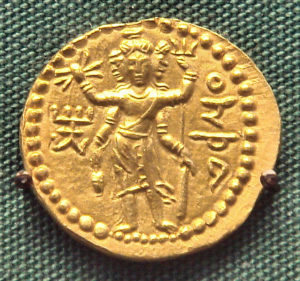Orlanthi leaders need to have the ability and willingness to personally use violence for the benefit of the community-at-large and for personal considerations, and have a network of connections with other violent people who are willing to aid them in this. In short, Orlanthi leaders need to be able and willing to put their lives on the line to protect the interest of their supporters and their community. This is the source of their power, and key to their social acceptance.
That’s of course the flip-side of Orlanthi society. Of course, they often use their power not only in pursuit of personal interest but also in troubleshooting and mediation on behalf of friends and family. That’s how they get community support after all. They maintain law and order and carry the burden of defending their communities against external enemies. And they need to do this personally (albeit with the aid of their network of violent companions and followers).
As a result, the Orlanthi don’t really have a concept of “impartial justice”. Maintaining honor, fulfilling oaths, and mediation between groups to find some arrangement that keeps the peace are far more important than some abstract ideal. A good leader supports their friends and followers, unless by doing so it weakens them. Respect matters a lot to Orlanthi, and that’s the foundation of the Honor passion.
Of course many Orlanthi leaders expect gifts from those who need their services (such as mediating a dispute). Leaders are also expected to give gifts to their friends and supporters for aiding them.

![]()
![]()
What about the social role of Humakt initiates and Swords? Humakti are among the most useful of “violent companions”. They carry out their promises, live to kill, etc. Their only demand is that the leader accept the Humakti rules for honourable conflict.
Now compare that to the Yelmite model of leadership. The leader, a hereditary aristocrat, needs to uphold justice by living it through proper adherence to ritual and impartial application of laws regardless of kinship or consequences are required. The Orlanthi method of banging together compromises by breaking heads and making deals is seen as barbaric and inherently unjust.
At slight risk of exaggeration, the difference is between rule by a mafia family and rule by an authoritarian bureaucracy.
Yelmic rule is literally authoritarian to its very core. There is no separation of powers and not a hint of democracy.
However, to maintain their authoritarian powers, a Yelmite leader must exercise great self-restraint in their actions. They must adhere to ritual and must impartially apply their sacred laws.
